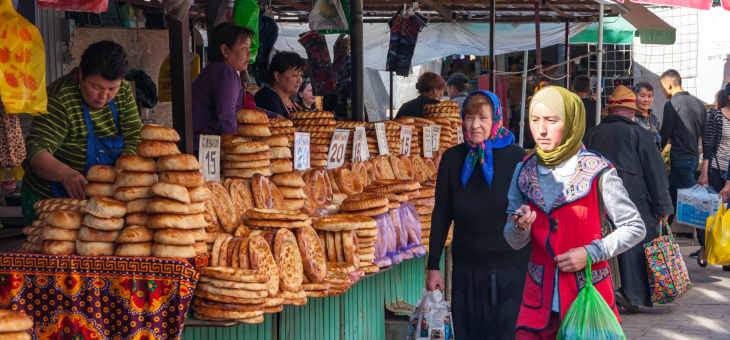Kyrgyzstan: Toward a third revolution since its independence?

Event
Violent protests erupted after the contested parliamentary elections held on 4 October. Pro-government parties representing the interest of the ’southern’ group largely won the elections as the other parties didn’t pass the 7% threshold needed to enter parliament. On 6 October, the Central Election Commission annulled the election. Despite this quick reaction, protests continued and the opposition set up a coordination council. The protesters released Atambayev (who was later detained again). As a result of the ongoing unrest, President Sooronbay Jeenbekov reshuffled top security officials, nominated a Prime Minister, offered his resignation, announced plans for new elections and declared a state of emergency in the capital Bishkek (which includes a ban on public rallies), thus halting the protests. On the 14th of October, the president accepted the nomination of Sadyr Japarov (who was freshly released from jail by its supporters) as Prime Minister and asks him to stay in power until new elections are held. In the meantime, the Prime Minister said that President Jeenbekov must honour its pledge to resign. The later refused to step down before the organisation of fresh election, as its resignation would further increase tension.
Impact
The political situation in Kyrgyzstan remains precarious. In this tense context, a new revolution cannot be ruled out. It would be the third revolution since the country’s independence from the Soviet Union in 1991. Indeed, a popular revolution – the so-called Tulip revolution – overthrew president Akayev in 2005. Another popular revolution ousted president Bakiyev in April 2010 and led to the adoption of a new constitution that put in place a parliamentary republic. Since then, Kyrgyzstan has been ruled by multi-party coalitions. Even if the political scene has stabilised over the past years as reflected by several peaceful election cycles, endemic corruption, cronyism, a deep division between regional and tribal groups and the related political purges continue to be recurring themes, which carry risk of renewed unrest as highlighted by the recent events. The last (peaceful) presidential elections took place in 2017. Sooronbay Jeenbekov (from the southern group), once a protégé of former president Almazbek Atambayev (2011-2017) (from the northern group), was elected as president in October 2017. Since then, his relation with his predecessor has turned sour, which led to the arrest of Atambayev in August 2019.
Apparently, the fact that all seats were won by the pro-government parties (from the southern group) led to renewed tensions in the country in a context of heightened social tensions due to the covid-19 pandemic (incl. grievances about the poor health system) and its fallout. Indeed, the Kyrgyz economy was hit hard by covid-19-related containment measures and the sharp drop in remittances. Remittances account for more than 45% of current account receipts and represent a source of revenues for many households. On the positive side, the increase in gold prices is good news as gold exports represent about 15% of current account receipts. The IMF expects real GDP to contract by a huge 12% this year. Public finances deteriorated. To enable the country to cope with the large external shock, it received international assistance (notably from the IMF). It also benefited from the G20 debt service suspension initiative.
The landlocked country hosts a Russian military base and is a member of the Russian-led Eurasian Economic Union and the Collective Security Treaty Organisation. Moreover, the Chinese economic presence in the country has increased rapidly over the last years. Both countries expressed their concern about the current political situation, but are unlikely to intervene. Even if the recent events are largely driven by domestic issues, they may have negative spillover impacts on the region as highlighted by the violence that erupted between the Kyrgyz and Uzbek communities in the south in June 2010.
Credendo is closely monitoring the tense and uncertain political situation. A further downgrade of the short-term political risk cannot not be ruled out. This rating was already downgraded to category 4 in April this year to reflect the deterioration of the liquidity situation resulting from the covid-19 economic crisis.
Analyst: Pascaline della Faille - P.dellaFaille@credendo.com